2024 Acquisition Highlights
September 2024
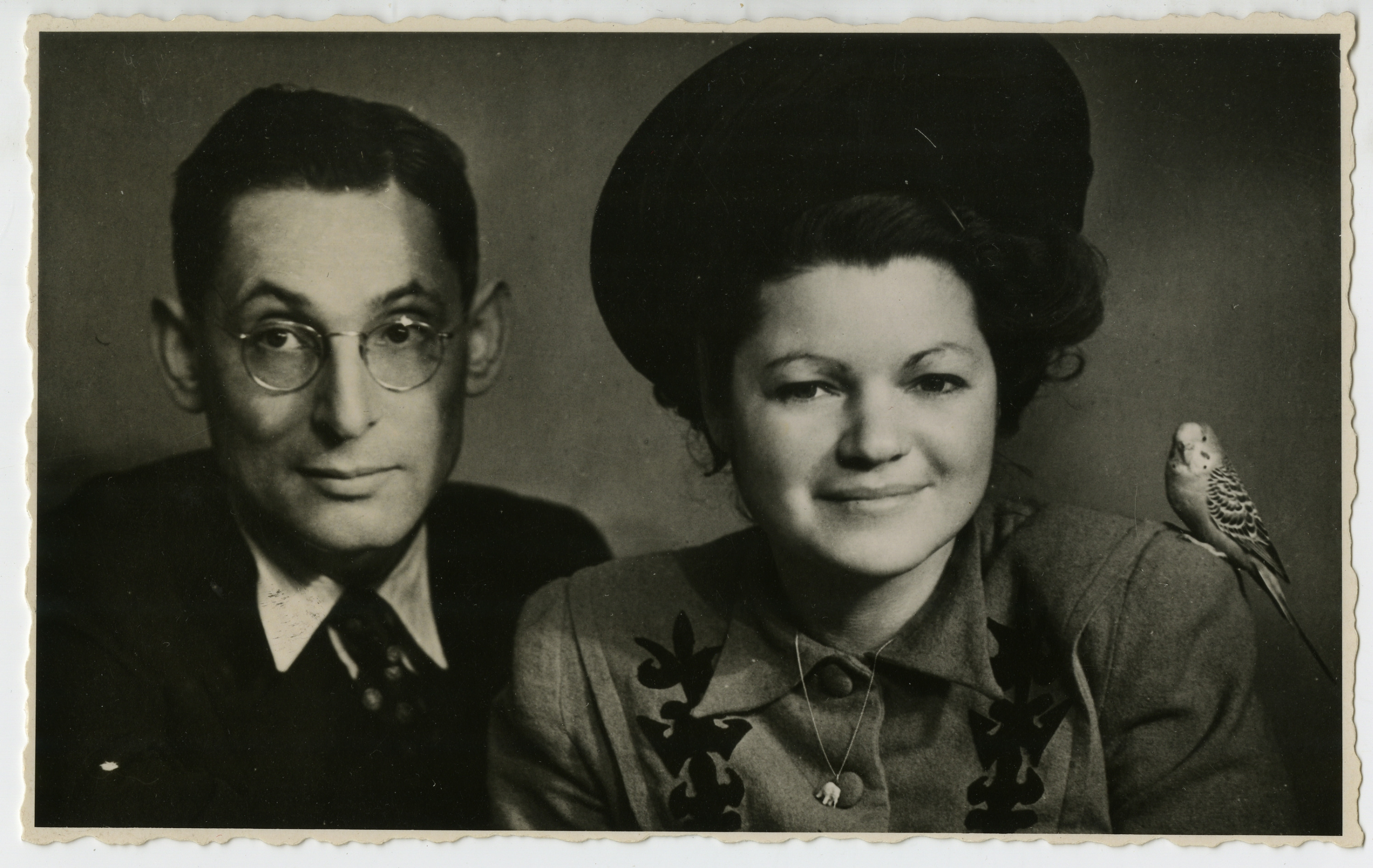 We are pleased to highlight a recent acquisition documenting the lives of Ellen and Theodore Ackermann (pictured left) of London, Ontario. This accession, received in September 2024, includes 7 cm of textual records and graphic materials. Of note is the couple's correspondence with Sir Roland "Roy" Welensky, who served as prime minister of the Federation of Rhodesia and Nyasaland from 1956 to 1963. This intriguing correspondence, which dates from 1956 to 1991, offers insight into the political and personal dynamics of the era.
We are pleased to highlight a recent acquisition documenting the lives of Ellen and Theodore Ackermann (pictured left) of London, Ontario. This accession, received in September 2024, includes 7 cm of textual records and graphic materials. Of note is the couple's correspondence with Sir Roland "Roy" Welensky, who served as prime minister of the Federation of Rhodesia and Nyasaland from 1956 to 1963. This intriguing correspondence, which dates from 1956 to 1991, offers insight into the political and personal dynamics of the era.
August 2024
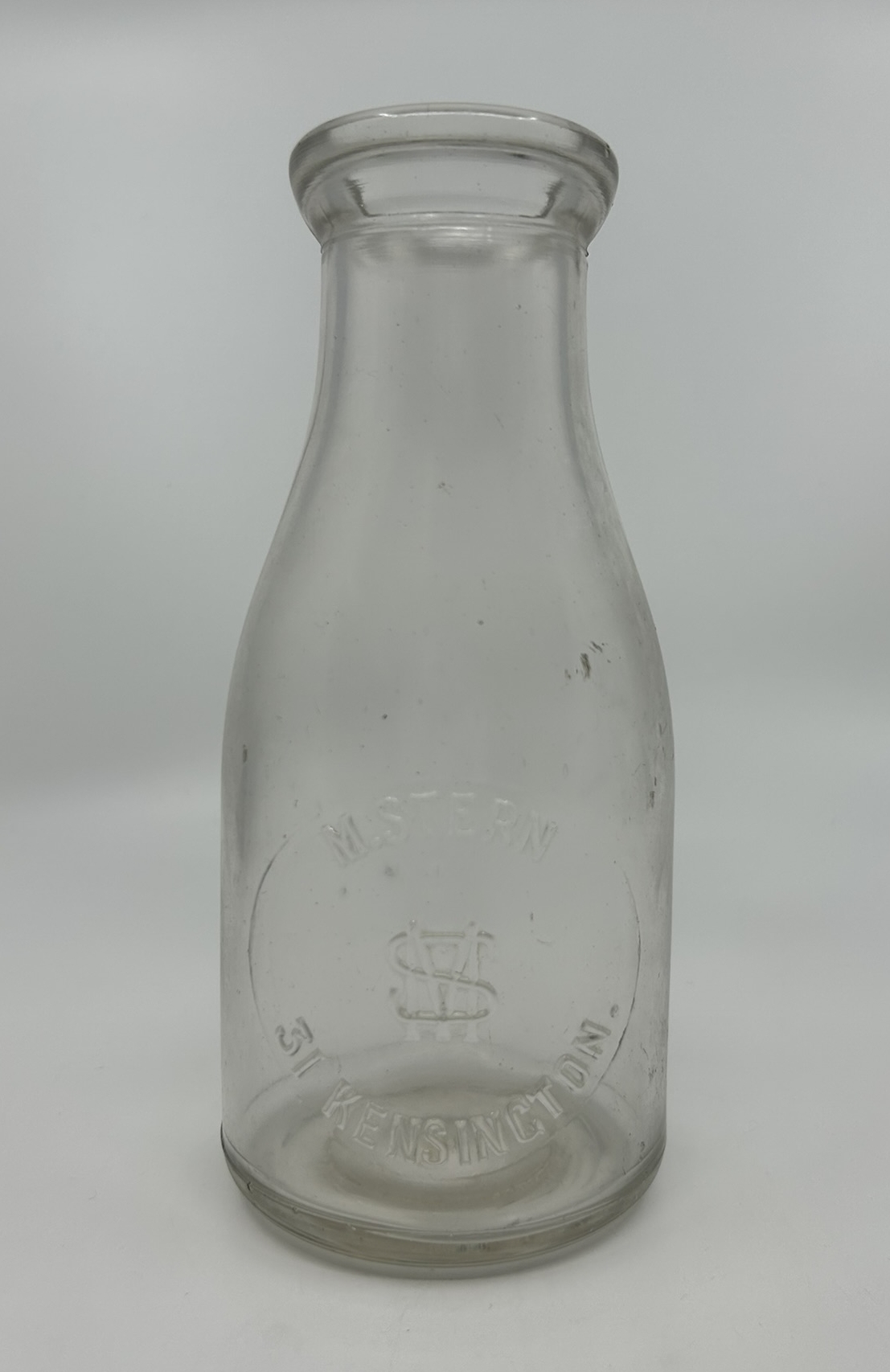 This month, we are excited to feature a unique artifact from Toronto's Jewish history—a glass milk bottle embossed with the name "M. Stern," an "MS" insignia, and the address "31 Kensington." This bottle, recently acquired at auction, offers a glimpse into the life and legacy of Moishe Stern, one of the first Jewish independent milkmen in Toronto.
This month, we are excited to feature a unique artifact from Toronto's Jewish history—a glass milk bottle embossed with the name "M. Stern," an "MS" insignia, and the address "31 Kensington." This bottle, recently acquired at auction, offers a glimpse into the life and legacy of Moishe Stern, one of the first Jewish independent milkmen in Toronto.
Moishe Stern, originally Moishe Shternshis, emigrated from Lagów, Poland, to Canada in 1911. After starting his career as a milkman in 1921, Moishe built a successful business, eventually founding the Alliance Dairy co-operative in 1944. The dairy played an essential role in the local Jewish community, and this bottle is a tangible reminder of that legacy.
Though the bottle was purchased by Erik Stern, a New York native with no relation to Moishe, the name "Stern" on the glass was a personal novelty, connecting this family to a shared surname and history. This milk bottle is a valuable addition to our collection, representing the entrepreneurial spirit of Jewish immigrants in Toronto and the legacy of Jewish-owned businesses in Kensington Market.
July 2024
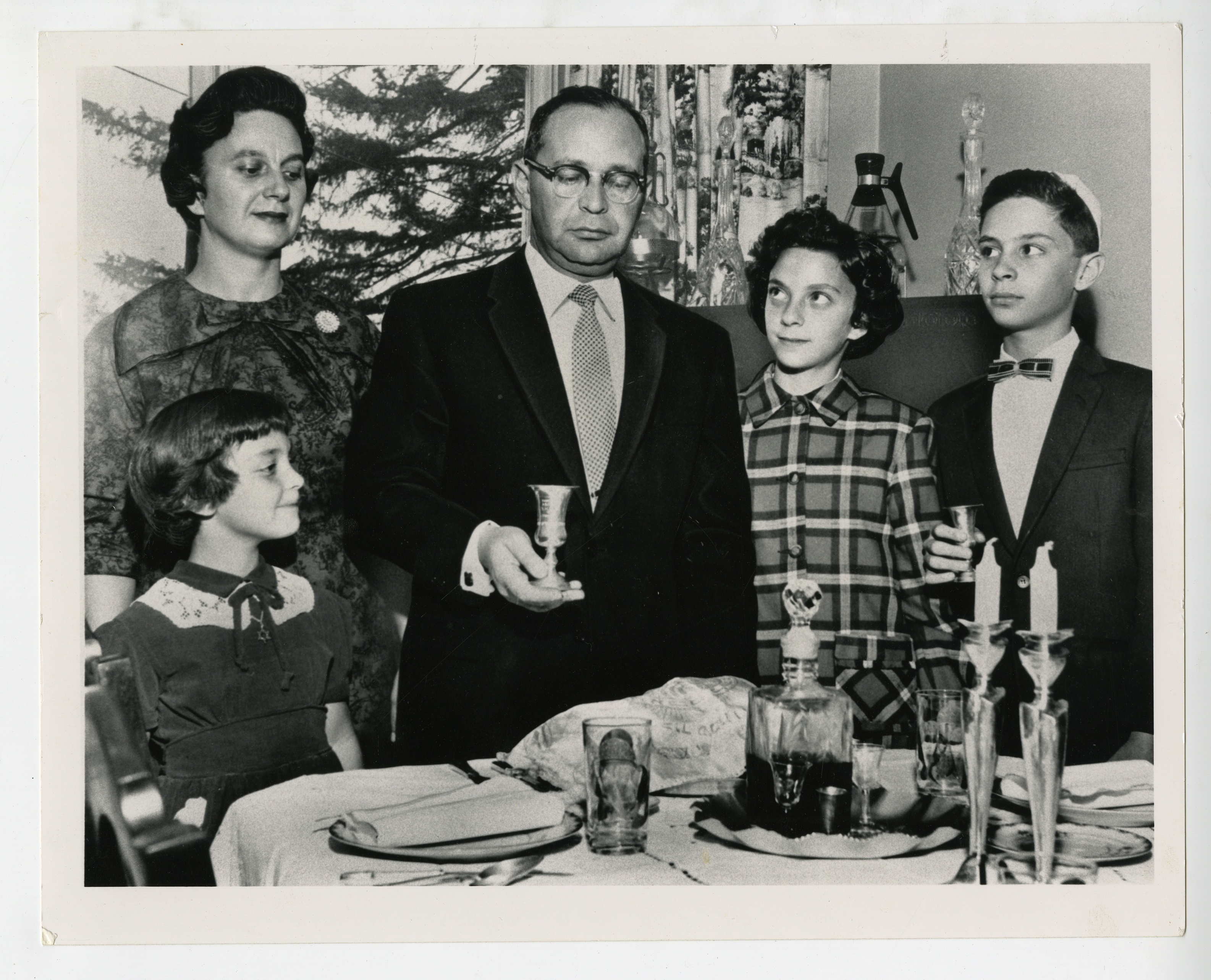
June 2024
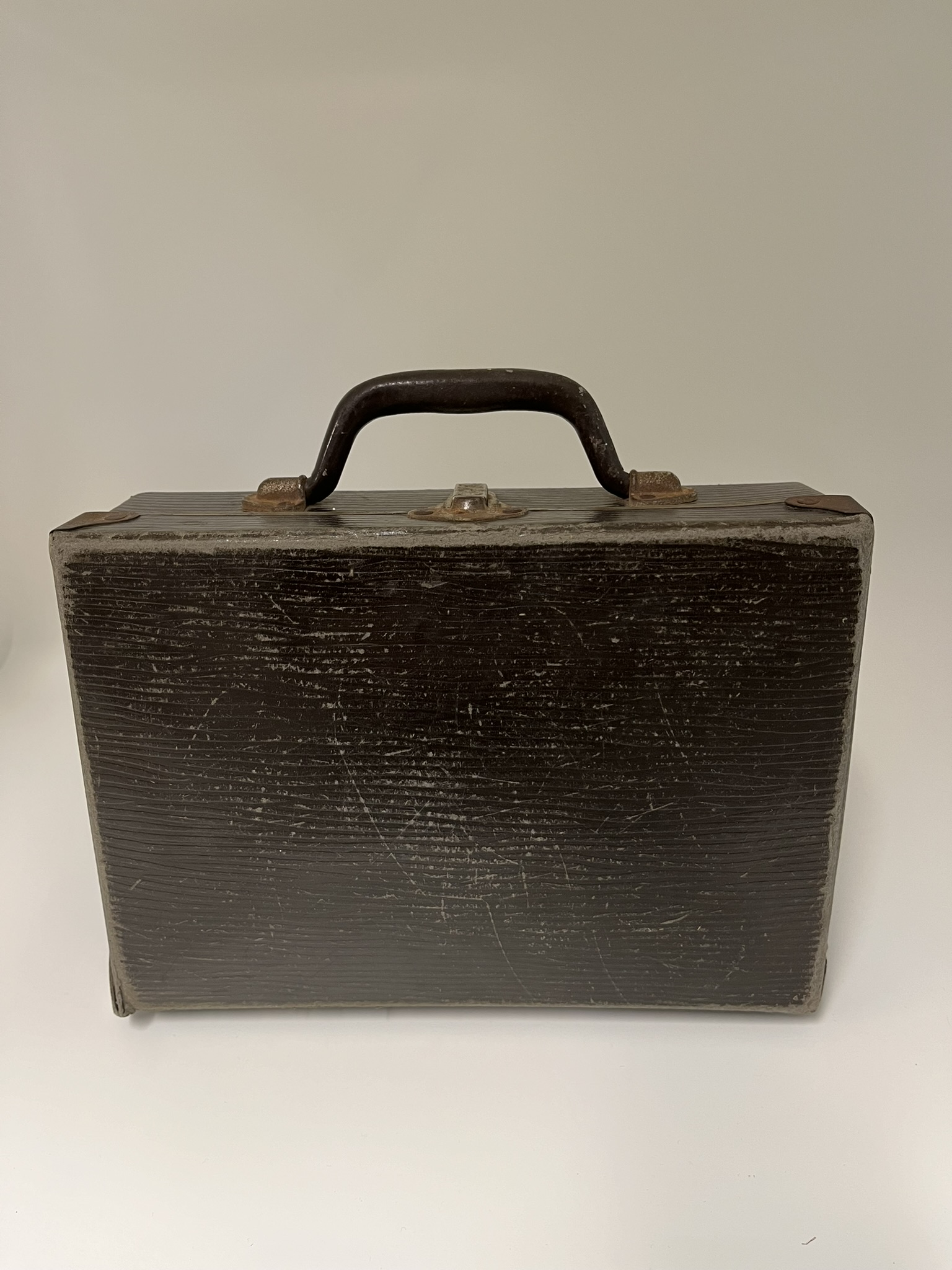 According to the United States Holocaust Memorial Museum, "Kindertransport (Children's Transport) was the informal name of a series of rescue efforts between 1938 and 1940. These rescue efforts brought thousands of refugee children, the vast majority of them Jewish, to Great Britain from Nazi Germany." One of those children who left the Third Reich (in this case, Nazi-ruled Austria) was Herbert Fielding.
According to the United States Holocaust Memorial Museum, "Kindertransport (Children's Transport) was the informal name of a series of rescue efforts between 1938 and 1940. These rescue efforts brought thousands of refugee children, the vast majority of them Jewish, to Great Britain from Nazi Germany." One of those children who left the Third Reich (in this case, Nazi-ruled Austria) was Herbert Fielding.
Born Herbert Zwergfeld, Herbert made his way to Great Britain, where he spent the entirety of the Second World War. His mother, Marie, was not so fortunate, dying in December 1944 after having been moved to Stutthof from the Riga ghetto.
Many of those who left the Third Reich as part of the Kindertransport were only able to bring one suitcase with them. The suitcase shown here belonged to Herbert. After the war, he held onto the briefcase, using it to store his personal correspondence and other important documents. One of his daughters, Helen, donated the briefcase along with the aforementioned documentation, which the OJA is pleased to preserve on behalf of, and in partnership with, the Toronto Holocaust Museum.
May 2024
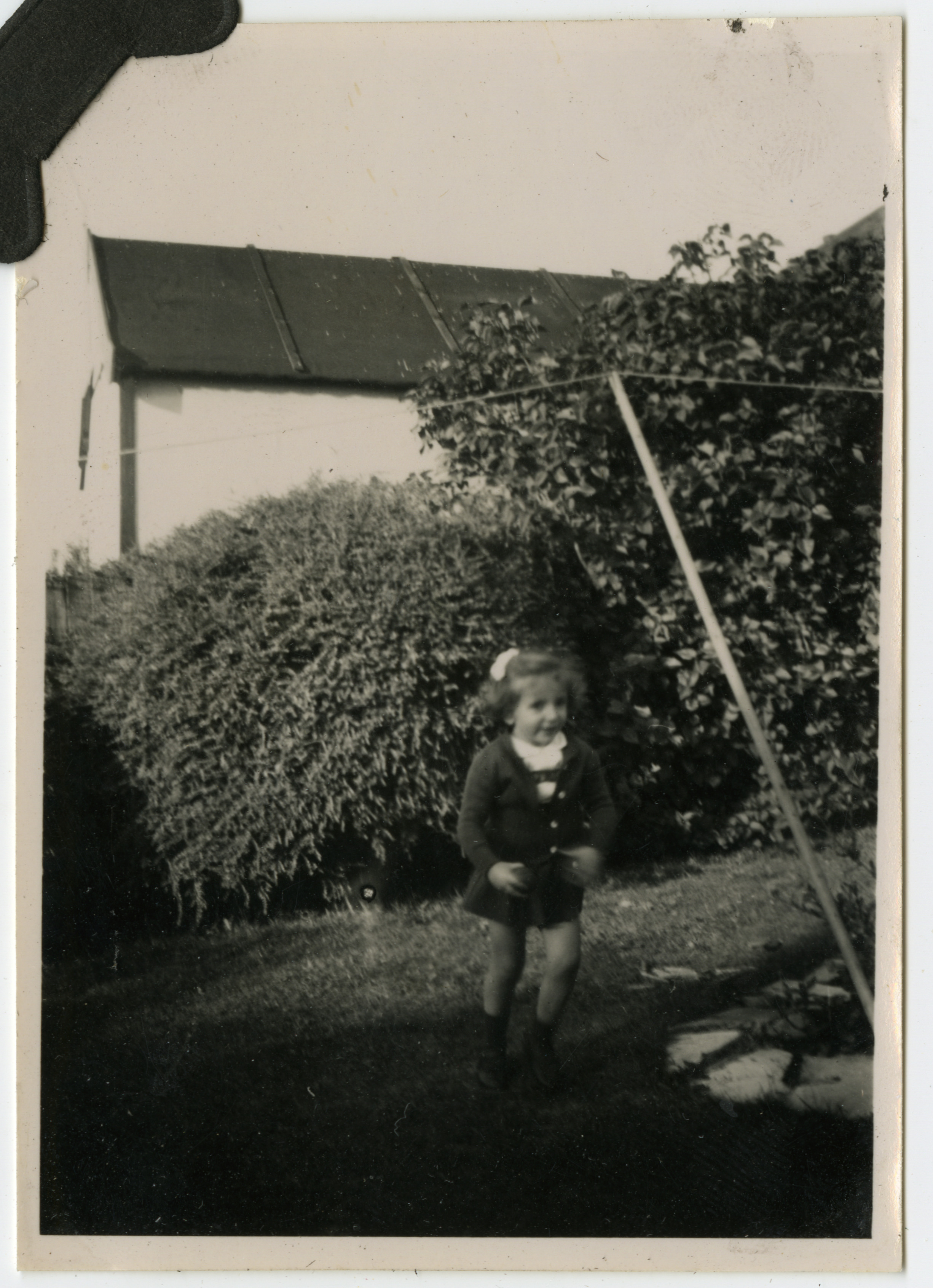 The story of Ontario's Jewish communities is, to a considerable degree, the story of individual families. For this reason, the OJA is always pleased to acquire family records in its mission to document Ontario's Jewish communities. This it did in May, when Karej Fejer (pictured left as a child) donated the records of the Raxlen family.
The story of Ontario's Jewish communities is, to a considerable degree, the story of individual families. For this reason, the OJA is always pleased to acquire family records in its mission to document Ontario's Jewish communities. This it did in May, when Karej Fejer (pictured left as a child) donated the records of the Raxlen family.
Among the items Karen donated were eight videocassettes containing home movies. Since videocassettes are considered an obsolete medium, the OJA has digitized their contents, which it will make available via its website. This way members of the extended Raxlen family and others will be able to see this priceless footage.
As a site note, whenever the OJA digitizes any of its items, it retains the original. A copy is never a substitute for the original as far as archivists are concerned!
April 2024
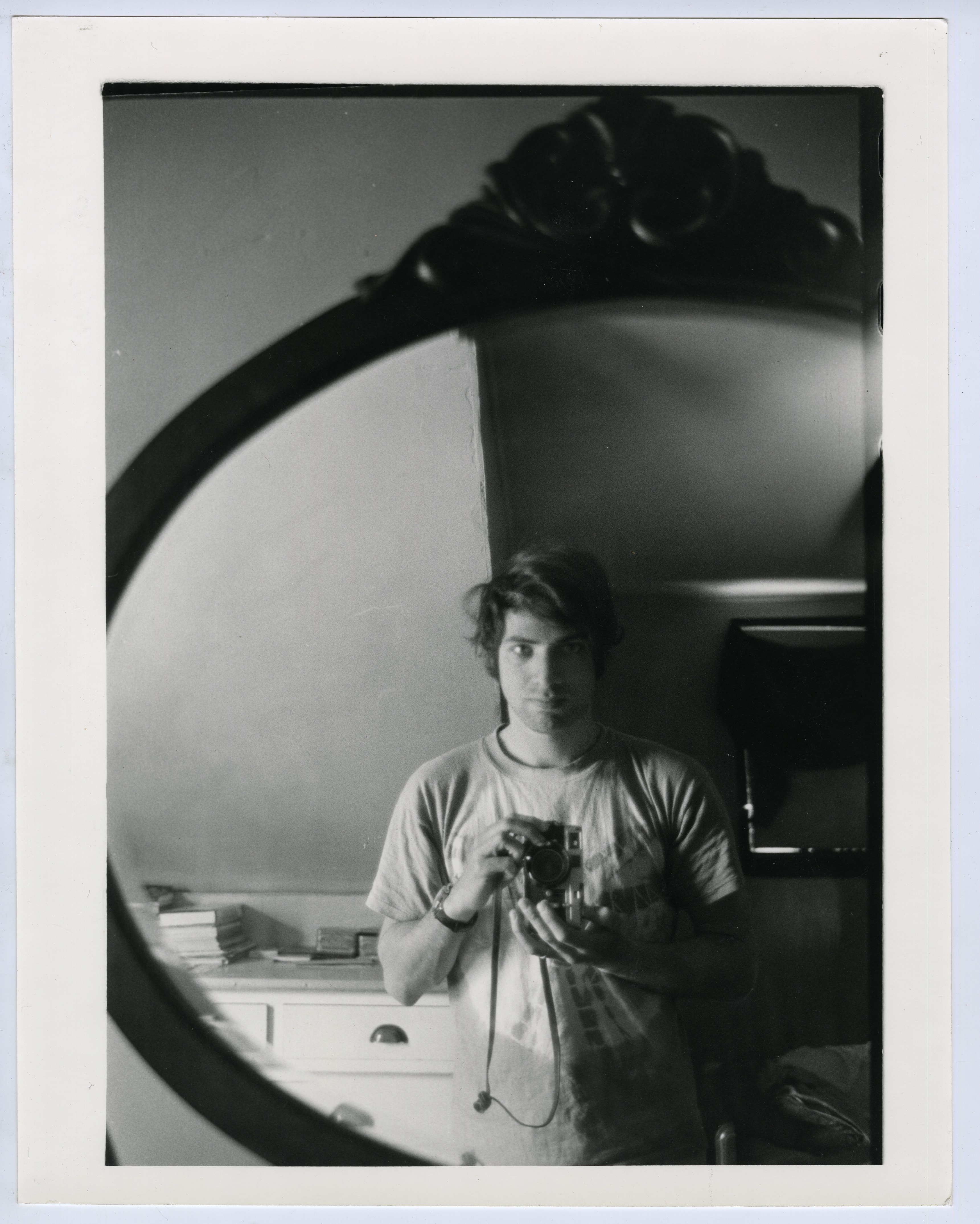 In April, the OJA was honoured to receive the first in what it hopes to be several donations of Toronto photographer Shelly Grimson's prints.
In April, the OJA was honoured to receive the first in what it hopes to be several donations of Toronto photographer Shelly Grimson's prints.
This first donation consists of ninety-seven black-and-white prints documenting outstanding figures of Canadian literature. Among those documented in the series are Margaret Atwood, Leonard Cohen, Victor Coleman, and and Michael Ondaatje. The series originated in 1970 when Oxford University Press hired Shelly to take portraits for a book that would be titled 15 Canadian Poets. In 1980, Anansi Press hired Shelly to take additional portraits. In 2003,twenty-five of Shelly's prints were shown in galleries, with a number of those photographed in attendance. Also in 2003, the prints were presented at the Griffin Prize Gala.
In the future, the OJA intends to acquire other series of prints from Shelly, including one documenting Camp Fundale, a day camp for children between the ages of eight and thirteen that was overseen by the Jewish Camp Council.
March 2024
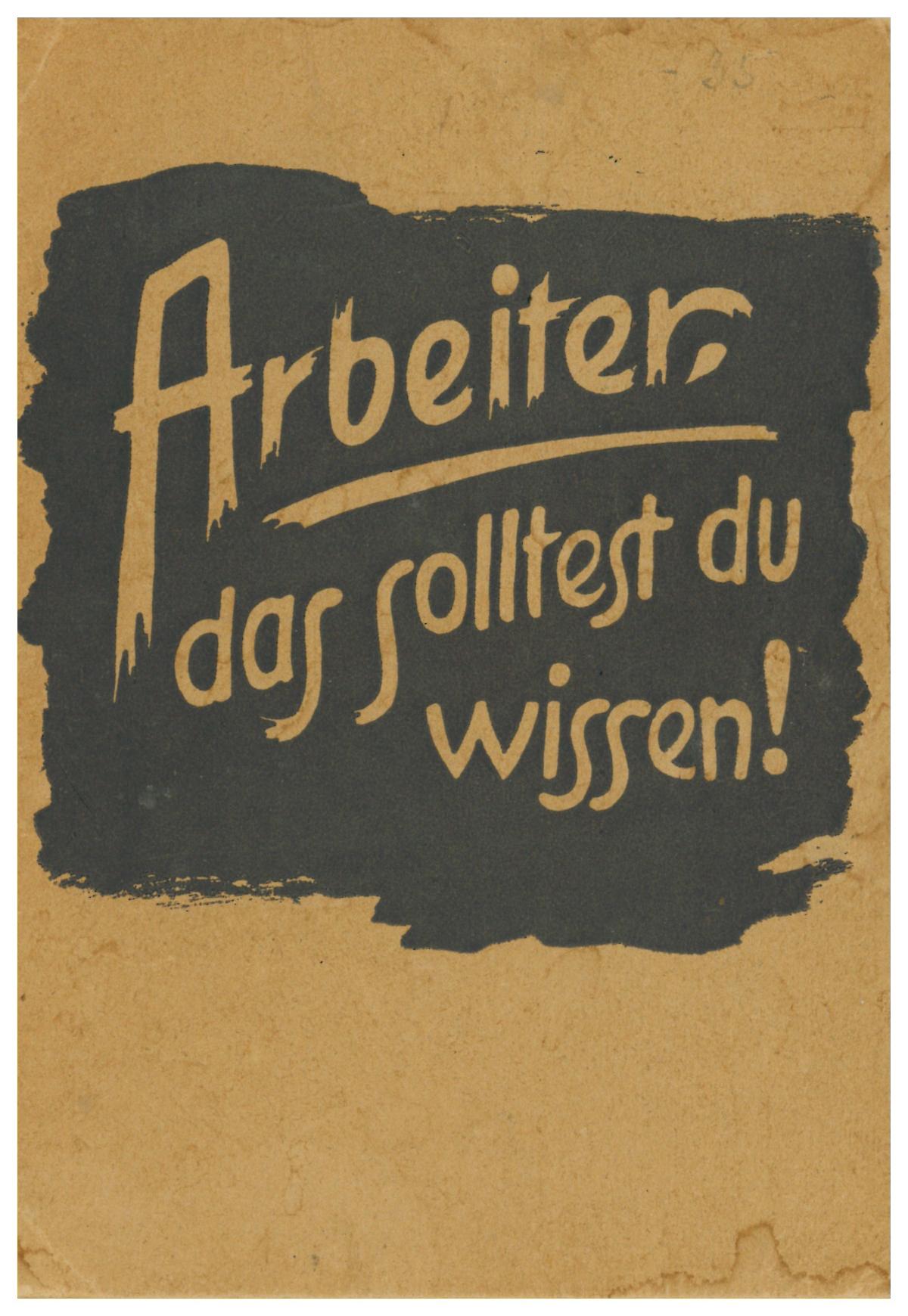 As part of its work, the Toronto Holocaust Museum (THM) showcases artifacts that have the potential to educate visitors about one of history's darkest episodes. Since it is not a collecting institution, the museum relies upon its sister department, the Ontario Jewish Archives (OJA), to acquire artifacts on its behalf.
As part of its work, the Toronto Holocaust Museum (THM) showcases artifacts that have the potential to educate visitors about one of history's darkest episodes. Since it is not a collecting institution, the museum relies upon its sister department, the Ontario Jewish Archives (OJA), to acquire artifacts on its behalf.
In March, an individual contacted the THM to offer several pieces of Nazi propaganda, including a propaganda booklet from 1935 titled "Adolf Hitler" and two booklets, one for workers and one for army members. Having clarified the custodial history of the items—an important step for establishing their authenticity—an OJA archivist reached out to the donor to acquire the items.
While the OJA's main work continues to be the documentation of Ontario's Jewish communities, we are pleased to be able to assist our friends at the THM in doing their work to advance Holocaust education. If you have artifacts that may be of interest to the THM, please fill out this online form, and an archivist from the OJA will be in touch.
February 2024
In February, the OJA was delighted to receives a portfolio of lithographs created and signed by Toronto artist Aba Bayevsky. Titled Tales from the Talmud, the portfolio includes eighteen lithographs depicting various scenes from the Talmud. In addition to the stories and illustrations, the work also features a foreward by Rabbi W. Gunther Plaut. Translations of the stories were provided by David E. Newman, making the portfolio for individuals who may not be able to read the stories in their original language.
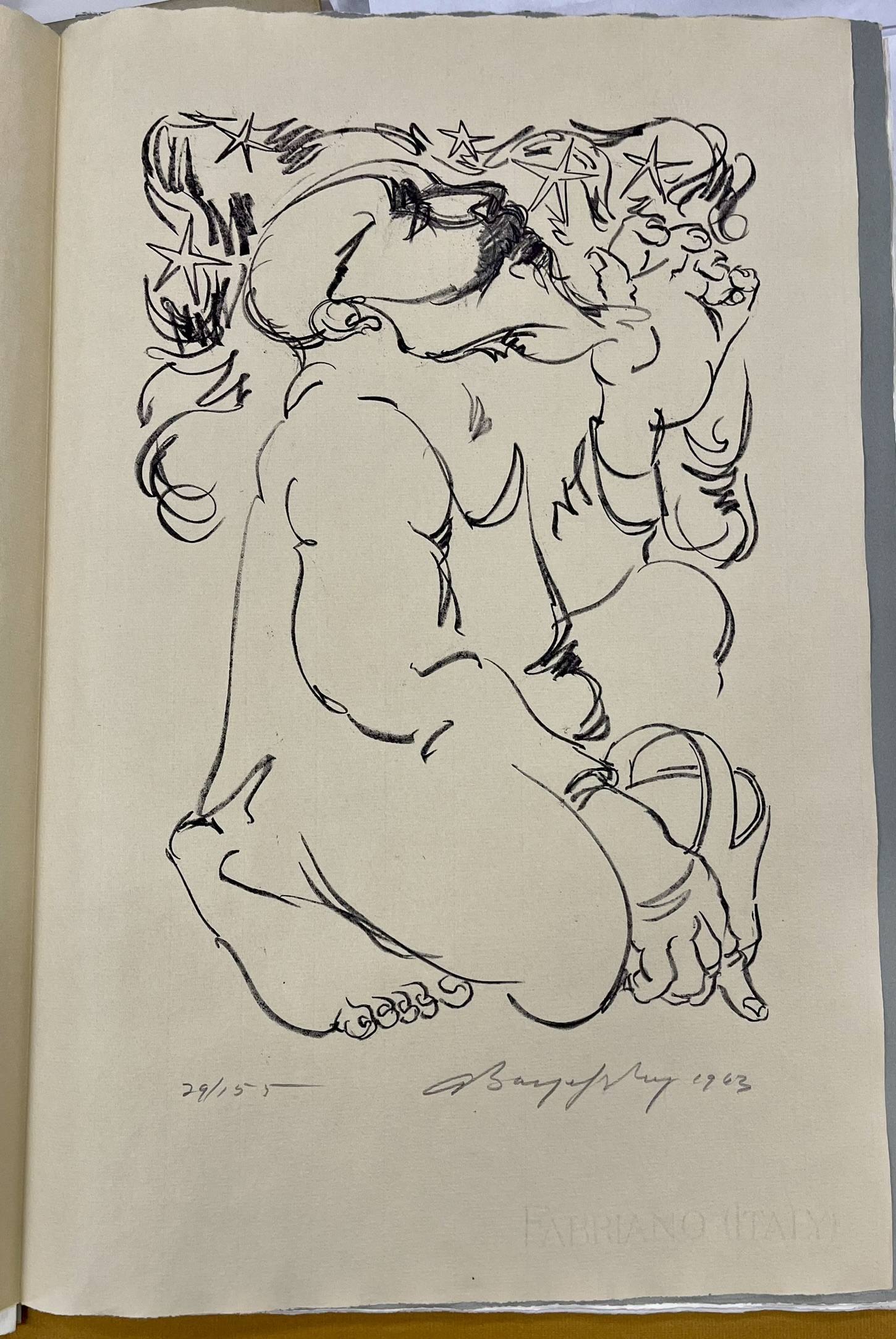
Shown above is one of Bayefsky's lithographs. On the opposite page, there is a translation of the tractate Baba Bathra 74b by Newman:
he said to me:
"come I will show you
where heaven and earth meet!"
when our destination we reached,
I placed my food basket in
an alcove in the sky,
my prayers I recited,
sought my food, but
it had vanished.
"are there thieves about?"
I asked
"this is the wheel of heaven
ever turning."
my companion replied.
"wait, the morrow your pannier
will store."
January 2024
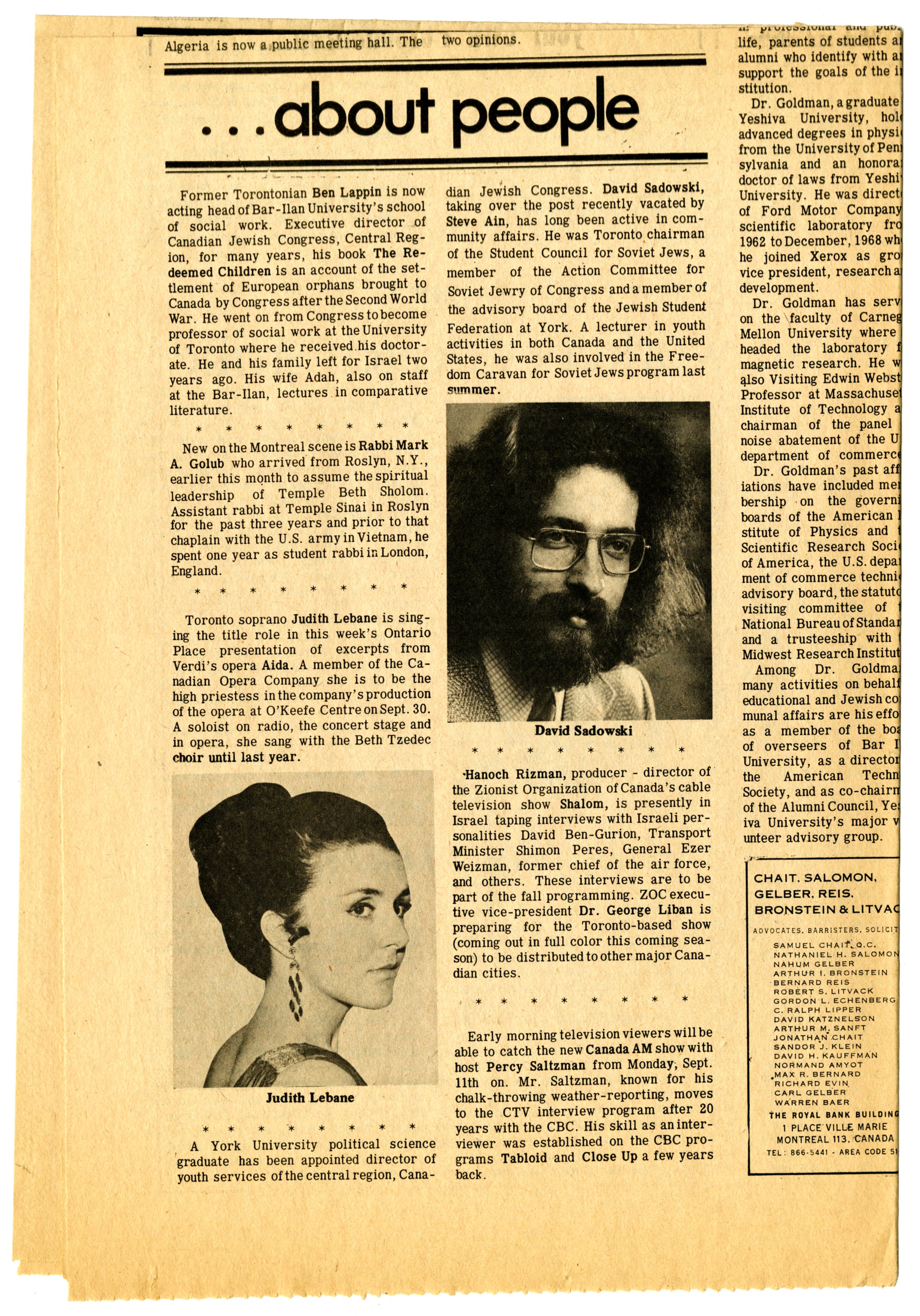 In 2023, David Sadowski retired from UJA Federation of Greater Toronto, where he oversaw UJA properties in and around Toronto. Before that, he served as director of youth services for the Canadian Jewish Congress in 1972 and associate director of community relations for the Joint Community Relations Committee circa 1974. And despite officially retiring, David continues to be a regular and welcome presence on UJA premises.
In 2023, David Sadowski retired from UJA Federation of Greater Toronto, where he oversaw UJA properties in and around Toronto. Before that, he served as director of youth services for the Canadian Jewish Congress in 1972 and associate director of community relations for the Joint Community Relations Committee circa 1974. And despite officially retiring, David continues to be a regular and welcome presence on UJA premises.
In January 2024, David donated some 40 cm of records documenting both his family and his career. As many as half of the records document his work on behalf of Soviet Jewry with groups such as the Student Council for Soviet Jews at York University. Among these records are newspapers related to Soviet premier Alexei Kosygin's visit to Canada in 1971, in the course of which Kosygin met with then prime minister Pierre Eliot Trudeau.
Shown here is a print publication featuring a photograph of David Sadowski sans signature red baseball cap. The text notes that Sadowski was "involved in the Freedom Caravan for Soviet Jews program last summer."